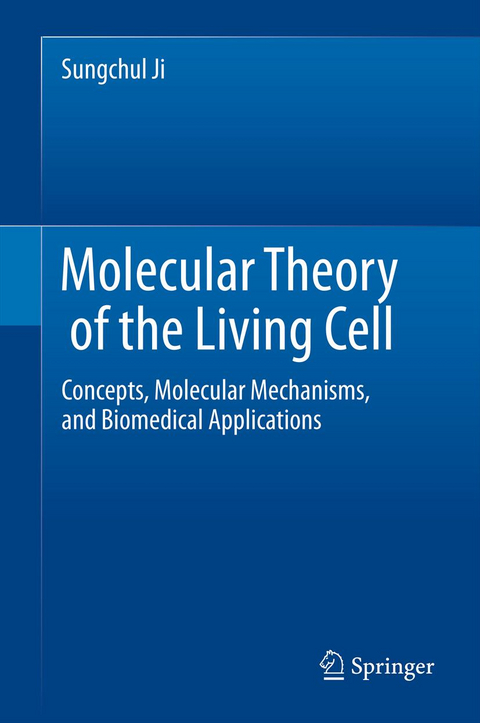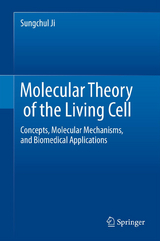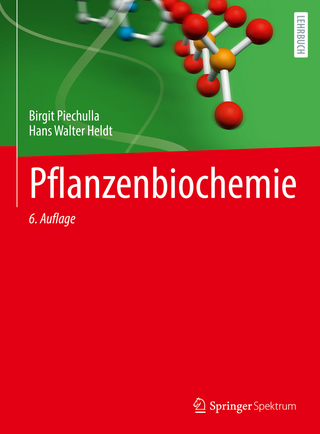Molecular Theory of the Living Cell
Springer-Verlag New York Inc.
978-1-4614-2151-1 (ISBN)
After two years of pre-engineering training at the College of Engineering, Seoul National University in Seoul, Korea, the author obtained a scholarship in 1962 to study at the University of Minnesota, Duluth, receiving a Bachelor’s degree in chemistry and mathematics in 1965. The author received a Ph.D. degree in physical organic chemistry from the State University of New York at Albany in 1970. Between 1970 and 74, he was a postdoctoral fellow and a Research Assistant Professor at the Institute for Enzyme Research at the University of Wisconsin, Madison, studying the molecular mechanisms of oxidative phosphorylation in mitochondria. The concept of the conformon that plays a key role in the theory of the living cell described in the book was first formulated while the author was carrying out bio-theoretical research in Madison. He then spent 2 years at the Johnson Research Foundation at the University of Pennsylvania investigating the space-dependent NADH fluorescence signals from rat liver and brains as a function of metabolic and circulatory perturbations. Based on the results of these experiments, the author was invited to join a research group at the Max Planck Institute for Systems Physiology, Dortmund, West Germany, as a visiting scientist, between 1976 and 1979, returning to the US in 1979 as a Research Associate Professor at the Department of Pharmacology, University of North Carolina School of Medicine, Chapel Hill, NC. The author spent 3 years in Chapel Hill, elucidating the mechanisms of alcohol-induced liver injury using rat models. Since 1982, the author has been teaching and carrying out theoretical and experimental research in the Department of Pharmacology and Toxicology at Rutgers University, Piscataway, NJ, where the author formulated the Bhopalator model of the cell in 1983 and has been developing and applying it to pharmacology and toxicology ever since.
Part I Principles, Laws, and Concepts.- Physics.- Chemistry.- Biology.- Engineering.- Linguistics, Semiotics, and Philosophy.- Part II Theories, Molecular Mechanisms, and Models.- Molecular Mechanisms of Enzymic Catalysis.- The Conformon.- Intracellular Dissipative Structures (IDSs).- The Living Cell.- Part III Applications: From Molecules to Mind and Evolution.- Subcellular Systems.- Whole Cells.- Mechanisms of the Origin of Life.- Principles and Mechanisms of Biological Evolution.- Multicellular Systems.- What Is Life?- Why Is the Cell So Complex?- Ribonoscopy and Personalized Medicine.- Ribonoscopy and ‘Theragnostics’.- Application of the Knowledge Uncertainty Principle to Biomedical Sciences.- Conclusions.
| Zusatzinfo | 129 Illustrations, color; 108 Illustrations, black and white; XXI, 748 p. 237 illus., 129 illus. in color. |
|---|---|
| Verlagsort | New York, NY |
| Sprache | englisch |
| Maße | 155 x 235 mm |
| Themenwelt | Geisteswissenschaften ► Philosophie |
| Naturwissenschaften ► Biologie ► Biochemie | |
| Naturwissenschaften ► Physik / Astronomie ► Angewandte Physik | |
| Schlagworte | Applications • Cell Biology • Conceptual • drug discovery • Foundations • Molecular Biology • Pharmacotherapeutics • Theoretical Biology |
| ISBN-10 | 1-4614-2151-9 / 1461421519 |
| ISBN-13 | 978-1-4614-2151-1 / 9781461421511 |
| Zustand | Neuware |
| Haben Sie eine Frage zum Produkt? |
aus dem Bereich




